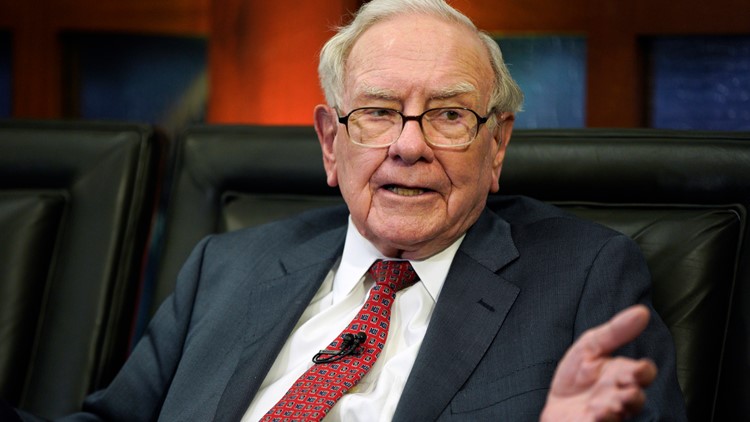OMAHA, Neb — Vice Chairman Greg Abel will succeed billionaire Warren Buffett as Berkshire Hathaway CEO, according to a report. Buffett confirmed the succession plan Monday to CNBC after Berkshire Vice Chairman Charlie Munger let slip the plan during during the company's annual meeting on Saturday. Buffett did not immediately respond Monday to questions from The Associated Press about the plan.
The 90-year-old Buffett told CNBC that if anything happened to him, Abel, who currently oversees all of Berkshire's non-insurance companies, would be the one to take the top post. Buffett said that if for some reason Abel couldn't do the job, then Vice Chairman Ajit Jain, who oversees Geico and all of Berkshire's other insurance units, would become CEO.
During an exchange at the annual meeting about the importance of protecting Berkshire's culture in the future, Buffett said Berkshire's extremely decentralized operating model won't work unless the company has the right culture.
Munger responded: “But we do, and Greg will keep the culture.”
Buffett has said he has no plans to retire.
Berkshire has long planned to split Buffett's job into three parts when he is gone: a CEO to oversee capital allocation and Berkshire's operations, investment managers to handle Berkshire's stock portfolio and a separate board chairman.
In the past, Buffett has declined to name the next CEO except to say that one of Berkshire's managers would take the job, but Abel was seen as a likely candidate. Buffett has said he wants the next CEO to have a long tenure leading the conglomerate and Abel is currently 59.
Buffett has named two investment managers who already help manage the portfolio and said that his oldest son, Howard Buffett, who already serves on Berkshire's board, is likely to become the company's next chairman.
It's clear that Berkshire values the contributions of Abel and Jain because both men received $19 million in compensation last year. That's well above the $100,000 salary Buffett has received for more than 25 years.
Edward Jones analyst Jim Shanahan said it's not a surprise that Abel will be Berkshire's next CEO given the role he has had overseeing many of Berkshire's more than 90 subsidiaries since 2018, including the BNSF railroad, all of Berkshire's utilities, retail and manufacturing companies.
“We have a great deal of comfort with Abel as CEO and with the overall future leadership of the company. I think he has proven to be a really effective leader,” said Shanahan, who pointed out that Abel handled questions about Berkshire's efforts to respond to climate change well at the annual meeting.
Abel came to the meeting prepared with presentation slides and lots of background information about what Berkshire's utilities and BNSF have done to reduce carbon dioxide emissions. It's a subject he knows well because the Canadian executive led Berkshire's utility division for more than a decade before he became a vice chairman, and he remains based on Des Moines, Iowa, where the utility unit's headquarters is.
CFRA Research analyst Cathy Seifert said this announcement should give investors some peace of mind that the leadership transition at Berkshire will be relatively seamless, but it's hard to know what kind of a leader Abel is because his only public appearances have been at the last two Berkshire annual meetings.
"It’s difficult to sort of assess his management style because we really don’t have access to him," Seifert said.
In addition to facing the pressure of following Buffett, Seifert said that Abel will likely face more pressure from activists who want the company to make changes because he won't control roughly one-third of the voting stock the way that Buffett does now. Over the weekend, Berkshire shareholders rejected proposals calling for the company to produce annual reports on climate change and diversity efforts largely because Buffett opposed them.
Jim Weber, CEO of Berkshire's Brooks Running company, said Abel has routinely visited the Seattle company to review its strategy and operations several times a year since becoming vice chairman. Plus, Abel is available whenever needed, which Weber took advantage of last year when the coronavirus pandemic shut down all the retail stores that sell Brooks' shoes.
“I wanted to get his insight into what he was seeing in the economy and at the other businesses. He’s seeing a large part of the economy just like Warren always has,” Weber said. Abel encouraged Weber to focus on Brooks' customers during the pandemic, which helped lead the company to shift to online sales and set sales records because people kept running even with the coronavirus restrictions.



